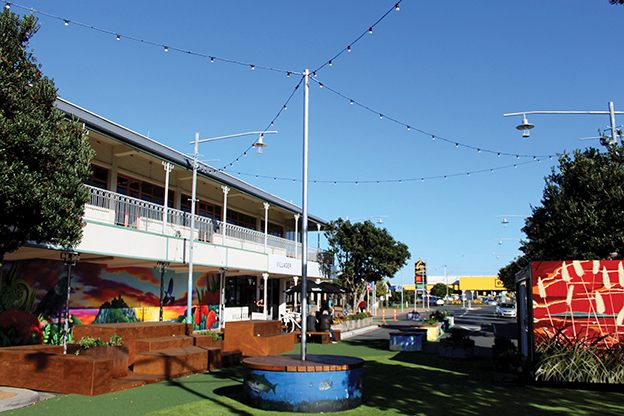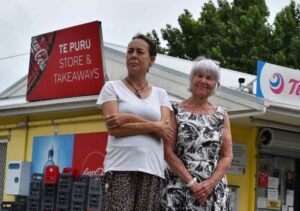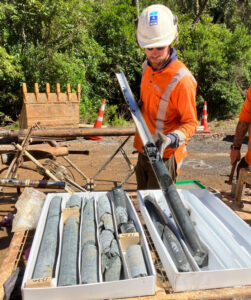The results of a survey conducted to determine the vibe of Thames’ attempt at “adaptive urbanism” will be presented to the local community board on August 2.
The survey amassed more than 1400 responses and centred around the closure of Mary St to through traffic, the construction of which began in February, 2021.
The project was partly funded by Waka Kotahi New Zealand Transport Agency as part of its
Innovating Streets for People programme, which supported 32 councils across Aotearoa to deliver 78 projects aimed at creating “safer and more accessible environments” and reducing “vehicle speeds and volumes”.
But Thames-Coromandel District Council’s version of the adaptive urbanism – which it was given $320,125 in Waka Kotahi funding for – has been met with varying opinions since it was established more than two years ago.
Two petitions – one ‘for’ and one ‘against’ The Vibe were presented to elected members, while businesses along Pollen St have spoken of the space attracting anti-social behaviours.
When The Profile asked Waka Kotahi its thoughts surrounding Thames’ Vibe, its manager for urban mobility Kathryn King said the council was responsible for decisions around whether the project remained in place.
She said the Create the Vibe project came out of the council’s Long Term Plan, and it was the council that was responsible for community engagement, design, and implementation of the project.
She did not provide comments as to whether the transport agency was aware of the public’s mixed opinions on the space.
Waka Kotahi provided funding of $29 million to councils from Northland to Invercargill for the
Innovating Streets for People programme.
Using adaptive urbanism, projects were implemented in the form of pilots, pop-ups, or interim treatments, allowing people to test “living, breathing versions” of designs and provide feedback in real time. This process allowed for continual improvement of the design while it was in place, Kathryn said.
How the design worked in practice and community feedback then informed future permanent street changes.
Of the 78 projects approved for funding as part of Innovating Streets for People, 16 projects did not install or withdrew from the programme, while 62 projects were installed.
At the end of the programme in 2021, an evaluation was carried out and at that time, 49 projects remained in place [63 per cent], three projects were installed permanently – with a significant adaptation or partial removal – four were removed earlier than their original proposed timeline and six were projects designed to be short term events and therefore were no longer in place.
“As councils are ultimately responsible for the projects they delivered, Waka Kotahi does not have more up to date information about which Innovating Streets for People projects are currently in place,” Kathryn said.
Thames-Coromandel District Council said it originally spent $35,569 of community board funds to set up the space, but in June, 2022, elected members voted to retain the Create the Vibe trial for a further 12 months, replacing some materials as required at a cost of up to $15,000.
BY KELLEY TANTAU





